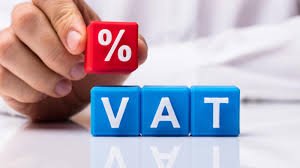The Federal Government of Nigeria’s decision to implement a zero Value Added Tax (VAT) on pharmaceutical products and medical devices was widely celebrated as a game-changer, aimed at reducing drug prices and easing financial pressures on Nigerians. The government set aside 150 days for the realization of the policy by offering zero import duty on essential drugs and pharmaceuticals to manufacturers. However, the duty-free window has closed, that is, four months after the policy took effect, a detailed investigation by Juliet Jacob uncovers a troubling reality: essential medicines remain prohibitively unaffordable for many households, raising questions about the policy’s actual impact on the lives of ordinary citizens.
Investigative Findings by Africa health report (AHR)
The Policy Framework

The policy, established through the Executive Order Harmonized Implementation Framework, provided exemptions from VAT and excise duty for pharmaceutical products and medical devices. Its goal was to support local manufacturers, stimulate investments in the healthcare sector, and lower costs for consumers. The responsibility for enforcement was assigned to the Federal Inland Revenue Service (FIRS) and the Nigeria Customs Service (NCS).
However, the success of the policy depends on its flawless implementation throughout the supply chain, involving manufacturers, distributors, and retailers.
Market Reality: Drug Prices Remain High
Visits to major pharmacies and drug stores in Abuja present a differing perspective:
Paracetamol: Once priced at ₦200 for a 500mg pack, it now sells for ₦250-₦300.
The cost of Amoxicillin (an antibiotic) has increased from ₦800 to ₦2000 for a typical package.
Anti-Malaria Medication: Common brands that cost ₦1,500 pre-policy now sell for ₦2,500.
These findings contradict the anticipated price reductions, raising questions about the policy’s actual implementation.

The Voice of Consumers
Interviews with patients reveal widespread frustration:
“I have diabetes and my monthly expenditure on insulin exceeds ₦20,000. Since the introduction of the zero VAT policy, I haven’t noticed any change in prices,” expressed Mr. Eddy, a civil servant based in Abuja.
“Even simple pain relievers such as paracetamol have increased in cost. Didn’t the government claim they eliminated taxes?” asked Mrs. Glory, a mother of two.
In a separate interview with Africa Health Report (AHR), Bwari Area Council resident Mrs. Justina recounted her experience: “I am undergoing treatment for malaria, and I’ve observed that the cost of the malaria medication I used to purchase for ₦1,500 has now increased to ₦3,500; the prices for medications haven’t changed.”
Pharmacists Speak Out
Drug retailers and pharmacists offer insights into why prices remain high:
Distribution Costs: Some pharmacists claim that distributors have not adjusted their pricing to reflect the tax exemption.
Sabotage Allegations: A pharmacist in kubwa abuja hinted at possible sabotage: “Some wholesalers keep prices high, claiming they’ve not seen the impact of the policy at the import level.”

Import Bottlenecks: Others attribute the issue to inefficiencies in customs operations, delaying the release of imported drugs despite the tax exemption.
Expert Analysis: What Went Wrong?
Dr. Jide Adewale, a health economist, points to systemic challenges:
Implementation Gaps: Policies often fail due to poor enforcement.
Market Exploitation: Retailers may be capitalizing on consumer ignorance about the tax break to maintain high prices.
Inflationary Pressures: The general rise in fuel and transport costs indirectly affects drug prices, undermining the zero VAT policy.
The Bigger Picture
This issue mirrors a larger trend of disconnect between policy announcements and their real-world impact. For example, the recent removal of fuel subsidies has similarly failed to bring down public transport costs, exacerbating the financial strain on households.
Recommendations
Strengthen Monitoring and Enforcement: The Ministry of Health and agencies like FIRS must ensure compliance at every level of the supply chain.
Consumer Awareness Campaigns: Educate Nigerians on the zero VAT policy to empower them to demand fair pricing.

Transparent Reporting: Regular updates on the policy’s impact should be made public, detailing cost reductions and challenges.
Address Market Exploitation: Investigate and penalize actors hoarding or inflating prices.
Data Analysis: Drug Prices Before and After Policy Implementation
Conclusion
While the zero VAT policy was a commendable initiative, its implementation appears to have faltered. The disconnect between government intentions and consumer realities underscores the need for robust oversight and systemic reform. Until these issues are addressed, millions of Nigerians will continue to struggle with high healthcare costs.



